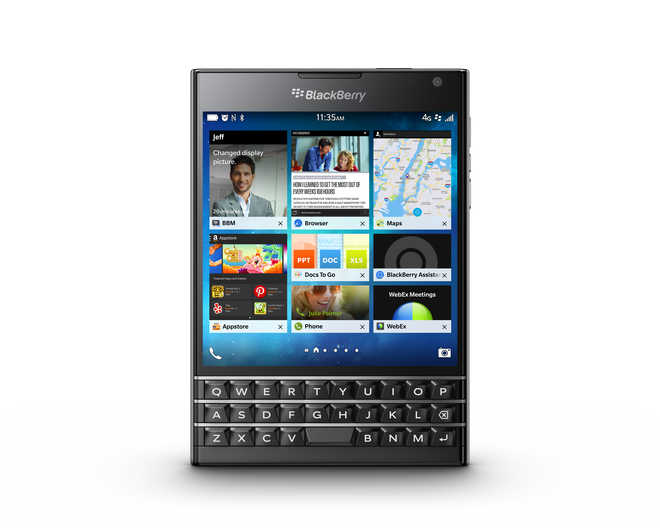Vaibhav Sharma
There comes an inflection point when you sometimes have to take hard decisions, or risk becoming wholly irrelevant. Sometimes those decisions pan out and sometimes you end up like Nokia — jumping from a ‘burning platform’, i.e. its old Symbian operating system to a raft called Windows Phone, that had no future at all. BlackBerry had been staring down the barrel for more than a few months. Its smartphone sales had virtually stalled; the shift from making Qwerty non-touch phones to all touch devices with its own operating system had borne poor results; and its move to Android also wasn’t setting the world on fire. Given these considerations, it was time for BlackBerry to pivot and enter the world of lower cost, higher return business. Making new hardware in a world of cut-throat margins driven by Chinese players was certainly not that proposition.
Last week, the company announced that it would stop making its own phones. “The company plans to end all internal hardware development and will outsource that function to partners,” CEO John Chen said in a statement. “This allows us to reduce capital requirements and enhance return on invested capital.” Does that mean that it is the end of an era; that we won’t see any other BlackBerry phone ever again? Fortunately for the BlackBerry boys (and girls), that isn’t the case. BlackBerry used to make its own phones, right from the design to manufacturing them in its own factories. But setting up factories is a pricey proposition and if there isn’t enough volume to manufacture, keeping them running can become prohibitively expensive. As BlackBerry does not want to come across as just another OEM (Original Equipment Manufacturer), it couldn’t even use these factories to manufacture devices for other players during the downtime. Interestingly, even Apple does not manufacture its own phones and instead uses companies like Foxconn to do all the heavy lifting. It does, however, design its own phones. What BlackBerry now proposes to do is more like the Nexus program that Google ran where an OEM actually designs and manufactures the device, while Google provides the software. This move from BlackBerry should not come as a surprise as it had already started walking down this path with the recently announced DTEK 50, a phone which carried the BlackBerry branding but was effectively a clone of the Alcatel’s Idol 4.
Not worrying about the costs associated with hardware design and manufacture lets BlackBerry channelise its resources towards its software and security initiatives that have started to be some fruit for the company. Chen noted that the company was on track to deliver 30 per cent revenue growth in software and services for the full fiscal year.
During its years of robust growth, software-based solutions like the Blackberry Messenger (BBM) and the Hub were what brought the company from under the enterprise umbrella, to the youth. The company still has a base of extremely loyal fans unwilling to give up its Qwerty keyboard. Chandandeep Singh, a lawyer by profession, swears by his BlackBerry Classic and promises to continue using it to the last day that What’sApp works on it. There may be a few hundred of fans like him left, but with both Facebook and WhatsApp ending their support for the old school BlackBerry, the end is nigh. Fans like him will have to settle for a new device that reads BlackBerry, but is probably a generic Android smartphone just rebadged as such.
BBM went cross platform a few years ago, but by then it was already too late as WhatsApp had already cemented itself as the de facto messaging standard. Its BlackBerry Hub has now become available as a paid app on other Android phones, and there remains very little reason for someone in the consumer space to buy a BlackBerry smartphone. Not many people know this, but Android in its early days started out as a virtual copy of BlackBerry’s phones and was supposed to be used with a full Qwerty physical keyboard. Then the iPhone came along, Android pivoted to embrace full touch, and the rest is history.
It is no longer cool to rock a BlackBerry, and more often than not, its staunch users end up getting jibed by their iOS or Android brethren for not having the latest or hottest app. There are Android powered BBs, but they neither give you the best of Google’s OS nor pack the latest and greatest hardware. The BlackBerry software, as least on the consumer side of things, is becoming platform agonistic. The company has given up on making its users feel hip again, but is turning its attention to where it can make the most money — enterprise, software and security.
Unlock Exclusive Insights with The Tribune Premium
Take your experience further with Premium access.
Thought-provoking Opinions, Expert Analysis, In-depth Insights and other Member Only Benefits
Already a Member? Sign In Now










